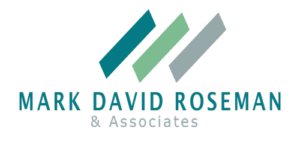What Matters in An Imperfect World – Huffington Post – submission, October 4, 2017
By Mark D. Roseman
Ph.D. Dr. Mark Roseman invites your ideas for a Community Dialogue Toolkit that he is preparing for South Florida and other communities. He is CEO of the Toby Center for Family Transitions, a Florida agency serving children and parents with divorce and child custody services. He is author of “Preserving Family Ties, A Handbook on Divorce and Child Custody” (Westbow Press, exp. Pub Date, 2017) He may be reached by email at mark.roseman@thetobycenter.org.
United by country music, the mosaic of American society has suffered at the hands of insanity, of Satin.
But now, in the wake of the horrifying, bloodied and deathly Las Vegas tragedy which has auspiciously marked the beginning of October 2017, pundits begin to examine and comment about appropriate gun ownership, hotel safety, tactical protection for open air public events. But some 19 Congressional leaders are reported to have turned their heads away.
Policymakers have begun to send acknowledgement and platitudes on the savage losses of children, moms, dads, police, black, white, vets who are being buried across America. Many more victims are being treated in Las Vegas regional hospitals, while thousands of individuals have lined up in the heat of the outdoors to donate blood.
What can we do? What ought we do? I want to understand better the questions we need to pose, and then, focus on possibilities.
I feel compelled to write as I’ve striven as many readers after so months of fathoming our world’s precarious condition. Indeed, finding the logic to hold on after frightening weeks fearing the bullying retorts which threaten “fire and fury”. Truly, it has been the fright of social rage consuming our media as much as the international posturing post November 2016 to be honest with the reader that has spurred my writing now.
How can we muster this strength? How can we muster the confidence in our ability to not only make social improvements, but to assure ourselves and those generations to follow, that such efforts will be beneficial to all?
I was raised to believe, to believe that life is short. To believe, too, that we are here to do good. That we alive to make this world a better place, for ourselves, for our children, for our grandchildren.
The dust hasn’t settled, the blood not yet wiped, the windows not repaired, the soul not restored.
How may we be able to move forward as a society, as the leader of the ‘Free World’ America is purported to be?
How may we contemplate answers, if we can at all these questions, when many of us our plagued by our own personal woes, as financial, and health. My own strength has been sapped today by these and other losses, as that of a friend’s wife who passed away yesterday from injuries sustained in a car accident last week. For several days I’ve been mourning my sudden breakup with my fiancé who I yet adore. Life is short, and the desire for a life filled with love and compassion can be so interrupted. Like that.
Think, also, of our returning veterans who can make little sense nor can accept these mass murders in our country, their country, for they have returned after facing tremendous odds, and with conviction to end tyranny elsewhere.
Now, in a sudden reach to my computer email system, I found myself thinking of the role of the clergy. What is their response? Will they, too, wield questions of ‘why’ and focus on faith in the future? Is it ‘God’s will’? Rabbi Harold Kushner, penned “When Bad Things Happen to Good People” in his personal effort to find clarity for his own grief in the plight of his son suffering from a horrific illness.
So, should we reach out to clergy who may be able to tend flock with understanding and acceptance?
Perhaps. In fact, moments ago I reached out with a suggestion for a public discussion to my dear friend, Rabbi Barry Silver, who is also an attorney and environmental activist. Rabbi Barry as he is affectionately called, regularly facilitates panels of interfaith clergy to address local, national and international issues across the faith based community. I am so delighted for his interest that we create an interfaith dialogue, titled “Making Sense of An Imperfect World”. He was very agreeable to our bringing this interfaith dialogue in be held in a regional college, or social service agency as a Children’s Services Council.
Perhaps, too, that in such a venue, the community leaders, clergy, policymakers, social service managers and the public can meet together, to articulate their fears, pose their own questions, and also, provide solutions for improving safe communities.
It does take a village. It takes a common understanding. It takes a willingness to question and a commitment to find resolutions to conflict avoidance.
There are too many dreadful acts in recent years.
We need not wait for bloodshed, death and wounds to address these social aberrations.
We ought not, if we value life.
Choose life.
